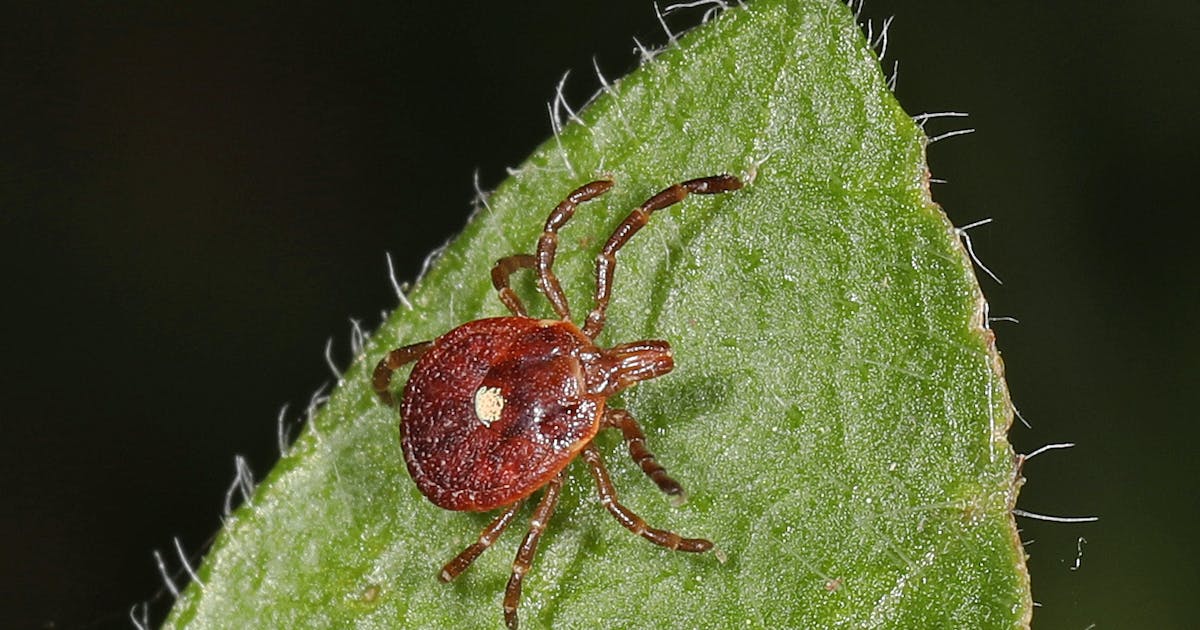Editor’s note: News about conservation and the environment is made every day, but some of it can fly under the radar. In a recurring feature, Conservation News shares three stories from the past week that you should know about.
1. The tick that causes a meat allergy is on the move
Summer backyard barbecues are about to take a hit.
The story: The lone star tick — a species widely believed to cause a severe and potentially fatal allergic reaction to red meat — is shifting its range in response to global warming, reports Livia Albeck-Ripka for the New York Times. While the lone star tick — and the illness it causes — were once isolated to the southern United States, researchers say that climate-fueled migration has allowed the species to pop up in places as far-flung as Nebraska and Maine.
The big picture: Ticks thrive in warm and humid conditions. Longer and warmer summers combined with shorter, milder winters have allowed them to move into environments that were once inhospitable. Some scientists believe that climate conditions have shifted dramatically enough for the lone star tick to reach as far as the west coast of the United States.
And it gets worse: There is also evidence that climate change has allowed deer ticks, which spread Lyme disease, to move farther north, even into Canada. Other parasites, like mosquitos that carry devastating pathogens like malaria and the dengue virus, are also experiencing a boom due to rapidly shifting weather patterns.
Though some parasites carry devastating diseases, scientists are quick to remind us that they are a vital part of healthy, intact ecosystems. Experts now believe that as many as one in three parasite species may face extinction in the next century.
Global warming is taking a huge toll on India.
The story: India is in the midst of a deadly heat wave that is upending lives and causing widespread blackouts across the country. The region, which still has two more months to go before the cooling monsoon rains begin, has seen temperatures rise to 46 degrees Celsius (115 degrees Fahrenheit) — the highest in well over a century. Evidence is mounting that this extreme weather is the direct result of climate change, reports Archana Chaudhary for Bloomberg.
“Why is it exceptionally warm this year? The only reason is global warming,” Roxy Mathew Koll, a climate scientist, told Bloomberg. “We have looked at data for 70 years and at the intensity, the number of heatwaves is directly in response to global warming.”
This current heatwave is only the beginning. Climate experts from the United Nations expect more frequent and intense heat waves and flood seasons to continue to impact India.
“The crisis is here, and it is all around us,” Conservation International CEO M. Sanjayan recently said. “Already, the world’s fire-prone area has doubled. And without rapid decarbonization of the global economy, we will see inland wells dry up, while coastal cities decay into the sea. This is the true cost of continued inaction: an irreversible flood of human misery.”
Species are disappearing before humans even know they exist.
The story: Just two weeks ago we shared news that a recently discovered frog species in Australia had been listed as endangered as soon as it was identified. Now, in a repetition that underscores the severity of the biodiversity crisis, two new species of fish discovered in Brazil’s Amazon Basin were deemed at risk of going extinct, largely due to human actions, Ashley Strickland reports for CNN.
“It was exciting to find new species,” Murilo Pastana, the researcher who made the discovery, told CNN. “But in the field, we saw the forest on fire, logging trucks carrying out huge trees and cleared patches turned into cattle pasture. This made us feel a lot of urgency to document these species and publish this paper as quickly as possible.”
The big picture: Habitat degradation, climate change and other factors are pushing species to their limit, leading many scientists to believe we are in the midst of a great extinction event. In total, as many as 1 million species could vanish within our lifetimes — and humanity is to blame.
Scientists have described around 1.2 million species on Earth — that’s a small fraction of the 8.7 million species that are estimated to exist. There are likely millions more varieties of plants and animals that remain unknown — and at the current rate of discovery and extinction, there is almost no way scientists will ever find them all. If humanity allows these species to disappear, we will never know the unique role they each play in maintaining the healthy ecosystems we all need to thrive.

